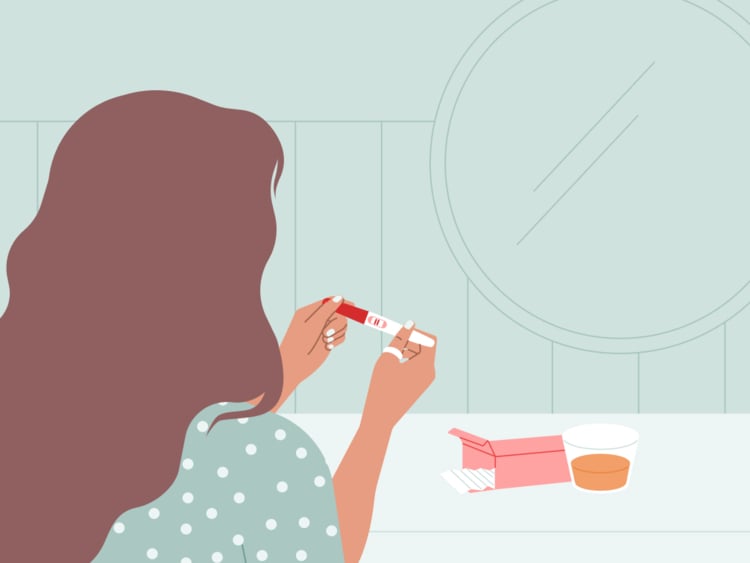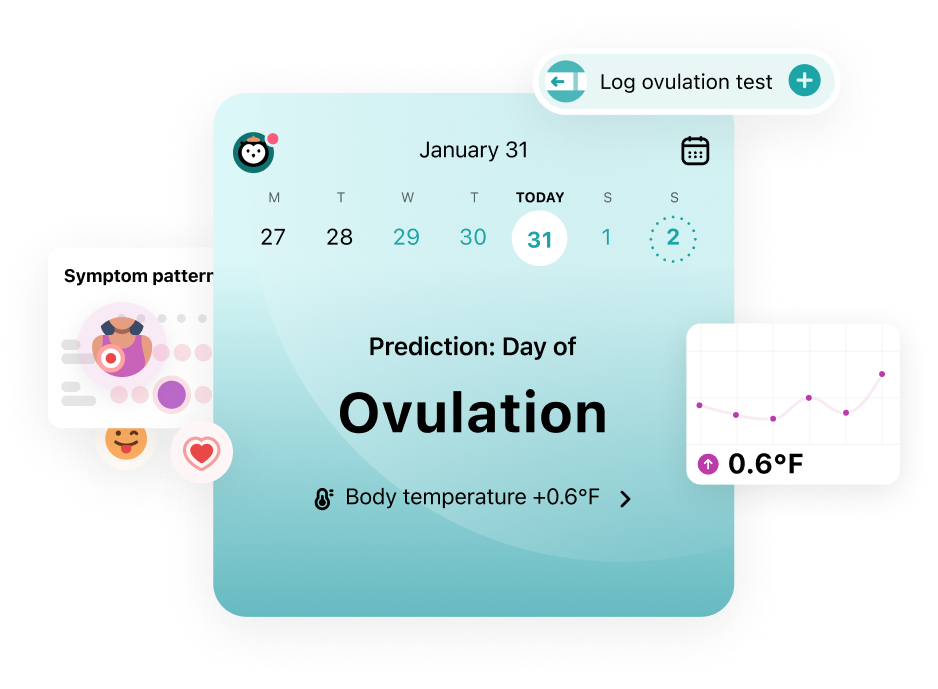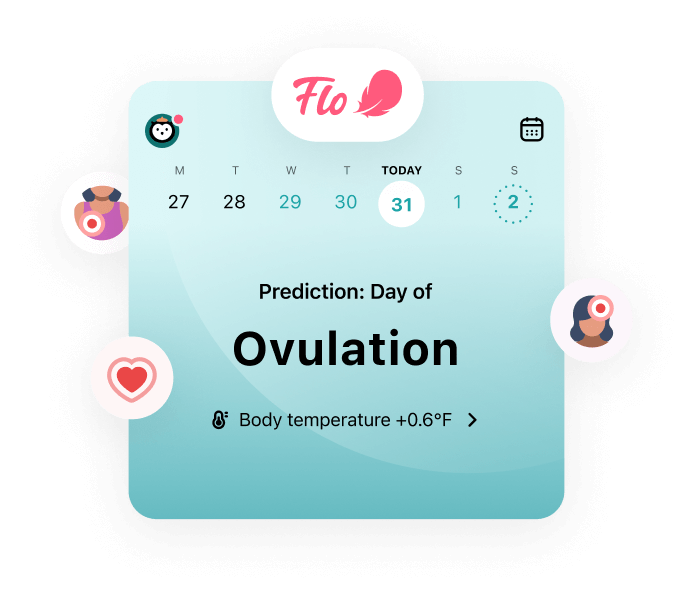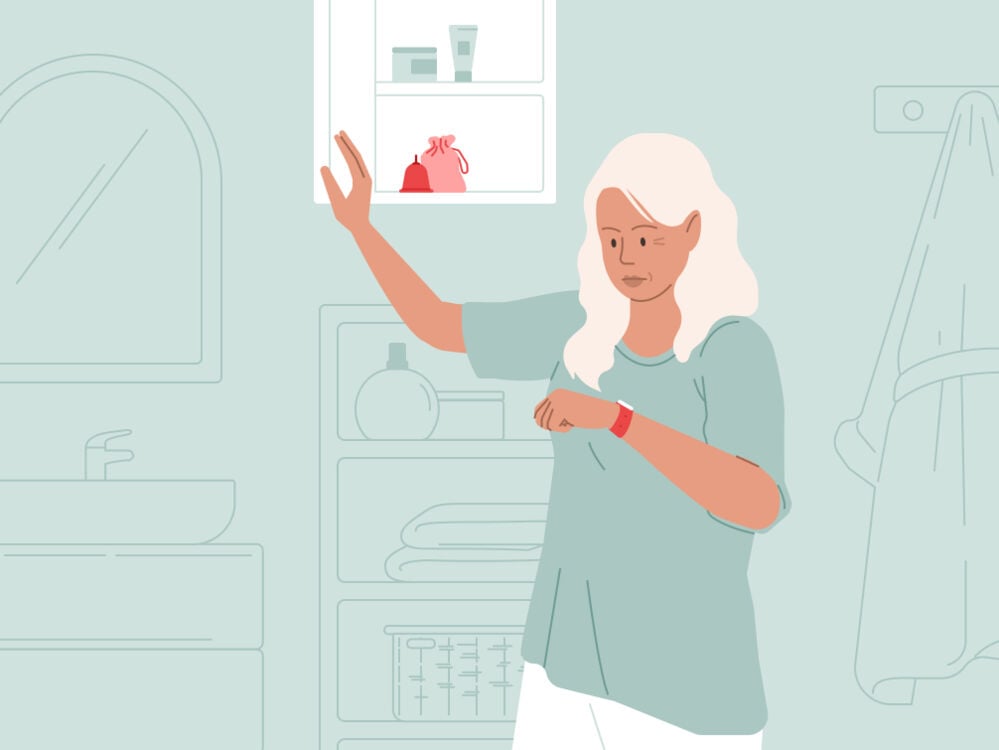Knowing when you’re ovulating could improve your chances of getting pregnant. Find out how long ovulation lasts and get tips for timing conception sex.
-
Tracking cycle
-
Getting pregnant
-
Pregnancy
-
Help Center
-
Flo for Partners
-
Anonymous Mode
-
Flo app reviews
-
Flo Premium New
-
Secret Chats New
-
Symptom Checker New
-
Your cycle
-
Health 360°
-
Getting pregnant
-
Pregnancy
-
Being a mom
-
LGBTQ+
-
Quizzes
-
Ovulation calculator
-
hCG calculator
-
Pregnancy test calculator
-
Menstrual cycle calculator
-
Period calculator
-
Implantation calculator
-
Pregnancy weeks to months calculator
-
Pregnancy due date calculator
-
IVF and FET due date calculator
-
Due date calculator by ultrasound
-
Medical Affairs
-
Science & Research
-
Pass It On Project New
-
Privacy Portal
-
Press Center
-
Flo Accuracy
-
Careers
-
Contact Us
When can you get pregnant after a positive ovulation test?


Every piece of content at Flo Health adheres to the highest editorial standards for language, style, and medical accuracy. To learn what we do to deliver the best health and lifestyle insights to you, check out our content review principles.
When you’re trying for a baby, it can feel as though you’re always second-guessing yourself. Have you had enough sex this month? Did you manage to hit your most fertile days?
That’s where ovulation tests come in as a handy tool. They can pick up the rise in luteinizing hormone (LH) that triggers the release of an egg from one of your ovaries. A surge in LH happens shortly before you ovulate. So, if your ovulation test is positive, then you can time sex well and hopefully maximize your chances of getting pregnant.
Here, Dr. Renita White, obstetrician and gynecologist, US, shares what you need to know about timing to get the most out of an ovulation test. From when you should start taking them to whether you can still get pregnant two days after a positive ovulation test, she’s got it covered.
Key takeaways
- A positive ovulation test picks up the LH surge that signals ovulation (when your ovary releases an egg) is about to happen.
- Once you ovulate, the egg only survives in your body for 12 to 14 hours.
- Having sex in the few days leading up to ovulation gives couples the best chance of conceiving.
- Your chance of conceiving starts to fall quickly after ovulation has happened, as this marks the end of your fertile window.
- An ovulation-tracking app like Flo can help you understand your cycle and what signs to look for if you think you might be ovulating soon.

 Over
7.8M
ratings averaging
4.8/5
*
Over
7.8M
ratings averaging
4.8/5
*
Understand your fertility better with the Flo app
- Learn more about your fertility signals
- Improve ovulation predictions by tracking temperature via Apple Watch
- Log your ovulation test results
 Over
7.8M
ratings averaging
4.8/5
*
Over
7.8M
ratings averaging
4.8/5
*

Trying to conceive?
The Flo app can help you better understand your fertility

 Over
7.8M
ratings averaging
4.8/5
*
Over
7.8M
ratings averaging
4.8/5
*
Understand your fertility better with the Flo app
- Learn more about your fertility signals
- Improve ovulation predictions by tracking temperature via Apple Watch
- Log your ovulation test results
How long does ovulation last after a positive ovulation test?
Whether you’re newly trying to conceive or you’ve been hoping to get pregnant for a while, you probably know by now that with conception, timing is really important. That’s why ovulation test strips, which you can conveniently use at home, can be so helpful.
As a general rule, a positive ovulation test gives you a signal that you’re likely to ovulate soon. Your levels of the hormone LH spike around 36 hours before you ovulate, and the egg then lives in your uterine tubes for about 12 to 24 hours after that. So you want to act quickly after spotting a positive ovulation test if you’re trying to get pregnant, having sex either that day or the day after.
It’s recommended that you start testing every day four days before your predicted ovulation day (an app like Flo can help you get an idea of when this may be). And it’s the first positive test you get that counts, says Dr. White. “The LH surge describes the sudden increase in LH,” she explains.
The length of that LH surge can vary between women. Take note, too, that LH levels don’t always drop as soon as you ovulate, which is why you might get a positive test for a few days in a row. “But that shouldn’t change anything because you should already be having sex in your fertile window,” says Dr. White.
So, when should you have conception sex?
Your fertile window is the name given to the handful of days each cycle when you can get pregnant. On average, you’re fertile for six days — the five days before ovulation plus the day itself. While an egg only survives for 12 to 24 hours after it’s released, sperm can live in your body for up to five days. That’s because your cervical mucus becomes more sperm-friendly at this point in your cycle — it’s thinner and less acidic. So if you have sex in the lead-up to ovulation, the sperm can stay inside you and wait for an egg to be released and hopefully fertilized.
Research shows having sex the day before you ovulate is best, giving an average 41% chance of conception. Conveniently, that’s likely to be the day you also get a positive test.
But don’t waste your other fertile days. The same study suggests that two days before you ovulate, you have a 33% chance of conceiving, and three days before, it’s 27% on average. Plus, if you wait for a positive ovulation strip, there’s a risk you may not test early enough in your cycle, so you may miss your LH surge, says Dr. White.
Should you have sex every day during your fertile window?
If you’re wondering how often to have conception sex, every other day is a safe enough bet, says Dr. White. “Studies have found couples who have sex every day, or multiple times a day, are no more likely to conceive than couples who have sex every other day. But there’s no harm in having sex every day if you want to,” she adds.
If you’ve been trying to get pregnant for a while, it’s normal for sex to start feeling like a bit of a chore. Remember that it’s OK to take a break if you feel you need to. Your doctor is also on hand to support you with fertility. Reach out to them if you’re under 35, you’ve been trying for a year, and you haven’t gotten pregnant. If you’re older than 35, schedule an appointment if nothing has happened after six months, and if you’re 40 or over, you’re best seeing a health care provider right away.
Don’t forget, timing sex for conception doesn’t have to be your responsibility alone. Flo for Partners gives your partner daily quick stories to help him learn about your cycle, alerts him to the best time to have sex to get pregnant, and provides tips on how to keep trying for a baby fun for both of you. You can access everything Flo for Partners has to offer with a Flo Premium membership.
Take a quiz
Find out what you can do with our Health Assistant

How do you know when ovulation is over?
We now know that your fertile window ends around a day after ovulation. And while your body doesn’t exactly ping you a text to notify you that your chances of getting pregnant are over for the month, it may give you some signs ovulation has happened. These signs include:
- Mild cramping in your pelvis (officially known as mittelschmerz)
- A small rise in basal body temperature after ovulation — by around (0.5° to 1°F)
- Changes in cervical mucus from egg white consistency to whiter and creamier
- Other signs, such as tender breasts and a drop in your sex drive from its ovulation-day high
Can you improve your chances of getting pregnant?
If you’re using ovulation-tracking methods and learning more about how your cycle works, you’re already doing the right things to improve your chances of getting pregnant. Plus, it’s always a good idea to make your lifestyle as healthy as you can while trying to conceive. Avoiding smoking, not overdoing exercise, limiting alcohol and coffee, and trying to maintain a weight that’s healthy for you are all ways you can prepare your body for a potential pregnancy.
Alongside all that, try to prevent conception sex pressure from creeping in, says Dr. White: “Try to make your fertile window a time for date nights and quality time together rather than focusing on schedules,” she suggests.
When to take a pregnancy test
You’ve taken a bunch of ovulation tests, had sex during your fertile window, and now all that’s left to do is wait. So when should you take that all-important pregnancy test?
Most home tests recommend waiting until the day your period is due — or 21 days after unprotected sex if you’re not sure when your next period will come. You can use Flo’s online pregnancy test calculator to help you figure out an estimate of when this will be.
Pregnancy tests work by detecting the pregnancy hormone human chorionic gonadotropin (hCG) in your pee. But if you test too early, hCG levels may still be too low, and you may get a negative result even if you have conceived. You can also get to know the early signs of pregnancy, which can include nausea, breast tenderness, and spotting. But remember, not everyone experiences these.
The two-week wait between your fertile window and taking a pregnancy test can feel tense, so go easy on yourself. Try to take your mind off it by throwing yourself into things that you enjoy, whether that’s seeing friends, finding a good series to binge, or getting some exercise and some fresh air. And remember — it’s perfectly normal if it takes you some time to get pregnant, but it happens within a year for 85% of couples. So try to remain optimistic if you can.
More FAQs
What are the odds of getting pregnant the day after ovulation?
Research suggests your fertile window starts to close pretty quickly once you’ve ovulated. Your odds are highest the day before you ovulate, with a 41% chance of conception. That chance drops to 20% on the day of ovulation. The day after ovulation, it’s down to just 8% and then drops to 0% the following day.
Can you ovulate late and still get pregnant?
It all depends on the reason for late ovulation, says Dr. White. “If you regularly have a long cycle, it may just be normal for you to ovulate late, and it should be possible for you to get pregnant.” And, she says, you may still be able to get pregnant if you have delayed ovulation and a late period for one-off reasons, like “stress, illness, or medication.” Speak to your doctor if you have any concerns.
Even if ovulation occurs later in your cycle, an at-home ovulation test would still alert you to your LH surge so you can time conception sex to coincide with your fertile window.
Does a positive ovulation test mean an egg is released?
Remember, ovulation tests predict you’re going to ovulate soon, but they don’t guarantee it. While the tests are generally accurate, one study found that more than 7% of positive results are false positives that don’t lead to ovulation. Getting to know your own body’s signs and symptoms of ovulation may help to confirm your test results and pinpoint your most fertile time more accurately. Certain conditions (such as polycystic ovary syndrome or PCOS) can make ovulation tests less accurate. This is because of a change in hormone levels, so speak with your health care provider if you don’t understand your test results or need help tracking ovulation.


Hey, I'm Anique
I started using Flo app to track my period and ovulation because we wanted to have a baby.


The Flo app helped me learn about my body and spot ovulation signs during our conception journey.


I vividly
remember the day
that we switched
Flo into
Pregnancy Mode — it was
such a special
moment.
Real stories, real results
Learn how the Flo app became an amazing cheerleader for us on our conception journey.
References
Barbieri, Robert L., and David A. Ehrmann. “Patient Education: Polycystic Ovary Syndrome (PCOS) (Beyond the Basics).” UpToDate, 7 Nov. 2023, www.uptodate.com/contents/polycystic-ovary-syndrome-pcos-beyond-the-basics/print.
“Breast Pain (Mastalgia).” Johns Hopkins Medicine, www.hopkinsmedicine.org/health/conditions-and-diseases/mastalgia-breast-pain. Accessed 15 Aug. 2024.
“Conception: How It Works.” UCSF Center for Reproductive Health, crh.ucsf.edu/about-fertility/conception. Accessed 15 Aug. 2024.
Direito, Ana, et al. “Relationships between the Luteinizing Hormone Surge and Other Characteristics of the Menstrual Cycle in Normally Ovulating Women.” Fertility and Sterility, vol. 99, no. 1, Jan. 2013, pp. 279–85.e3, https://doi.org/10.1016/j.fertnstert.2012.08.047.
“Doing a Pregnancy Test.” NHS, www.nhs.uk/pregnancy/trying-for-a-baby/doing-a-pregnancy-test/. Accessed 19 Dec. 2022.
Faust, Louis, et al. “Findings from a Mobile Application-Based Cohort Are Consistent with Established Knowledge of the Menstrual Cycle, Fertile Window, and Conception.” Fertility and Sterility, vol. 112, no. 3, Sep. 2019, pp. 450–57.e3, doi:10.1016/j.fertnstert.2019.05.008.
“Fertility Awareness-Based Methods of Family Planning.” The American College of Obstetricians and Gynecologists, Jan. 2019, www.acog.org/womens-health/faqs/fertility-awareness-based-methods-of-family-planning.
“How to Get Pregnant.” Mayo Clinic, 11 Dec. 2021, www.mayoclinic.org/healthy-lifestyle/getting-pregnant/in-depth/how-to-get-pregnant/art-20047611.
Johnson, Sarah, et al. “Increased Likelihood of Pregnancy from Sex on the Two Days before Ovulation [5B].” Obstetrics and Gynecology, vol. 131, no. 1, May 2018, DOI:10.1097/01.AOG.0000532907.57204.dd.
Leiva, Rene Antonio, et al. “Urinary Luteinizing Hormone Tests: Which Concentration Threshold Best Predicts Ovulation?” Frontiers in Public Health, vol. 5, 28 Nov. 2017, p. 320, doi:10.3389/fpubh.2017.00320.
McGovern, Peter G., et al. “Absence of Secretory Endometrium after False-Positive Home Urine Luteinizing Hormone Testing.” Fertility and Sterility, vol. 82, no. 5, Nov. 2004, pp. 1273–77, https://doi.org/10.1016/j.fertnstert.2004.03.070.
Ogle, Alicia. “Using Ovulation Tools to Predict Fertility.” Mayo Clinic Health System, 13 June 2023, www.mayoclinichealthsystem.org/hometown-health/speaking-of-health/using-ovulation-kits-to-predict-fertility.
“Ovulation.” Cleveland Clinic, my.clevelandclinic.org/health/articles/23439-ovulation. Accessed 17 Feb. 2023.
“Ovulation Pain.” Cleveland Clinic, my.clevelandclinic.org/health/diseases/9134-ovulation-pain-mittelschmerz. Accessed 15 Aug. 2024.
“Pregnancy.” US Food and Drug Administration, 29 Apr. 2019, www.fda.gov/medical-devices/home-use-tests/pregnancy.
“Pregnancy Tests” Cleveland Clinic, my.clevelandclinic.org/health/diagnostics/9703-pregnancy-tests. Accessed 15 Aug. 2024.
Reed, Beverly G., and Bruce R. Carr. “The Normal Menstrual Cycle and the Control of Ovulation.” Endotext, edited by K. R. Feingold et al., MDText.com, 2000, www.ncbi.nlm.nih.gov/books/NBK279054.
“Session 24: Ovulation and Fecundity.” Human Reproduction, vol. 25, suppl. 1, 1 June 2010, pp. i37–i38, https://doi.org/10.1093/humrep/de.25.s1.24.
Soumpasis, I., et al. “Real-Life Insights on Menstrual Cycles and Ovulation Using Big Data.” Human Reproduction Open, vol. 2020, no. 2, 16 Apr. 2020, doi: 10.1093/hropen/hoaa011.
Van Stein, K. R., et al. “Ovulatory Shifts in Sexual Desire but Not Mate Preferences: An LH-Test-Confirmed, Longitudinal Study.” Evolutionary Psychology, vol. 17, no. 2, 23 May 2019, https://doi.org/10.1177/1474704919848116.
“What Ovulation Signs Can I Watch for if I Want to Get Pregnant?” Mayo Clinic, 9 July 2024, www.mayoclinic.org/healthy-lifestyle/getting-pregnant/expert-answers/ovulation-signs/faq-20058000.
Witt, Barry. “Trying to Get Pregnant? Here’s When to Have Sex.” The American College of Obstetricians and Gynecologists, Aug. 2023, www.acog.org/womens-health/experts-and-stories/the-latest/trying-to-get-pregnant-heres-when-to-have-sex.
History of updates
Current version (21 August 2024)
Published (21 August 2024)
In this article

Get your personal guide to fertility
-
Learn how to read your body's ovulation signals
-
Find daily conception tips from our experts
-
Chat with others who are trying to get pregnant




